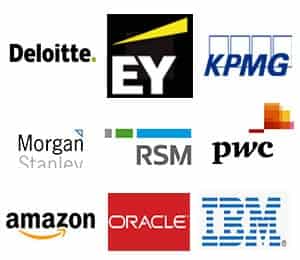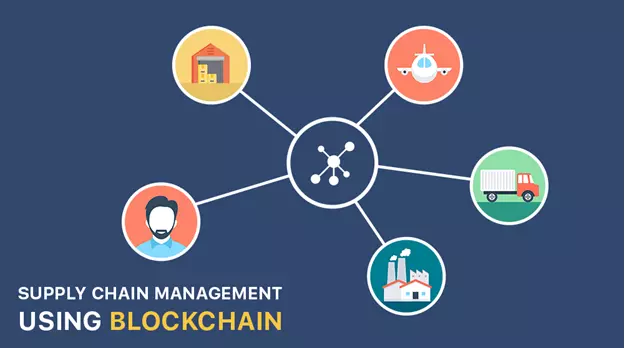Career after CFE Certification
As per estimates, typical organization loses by about 5 percent of its revenues to fraud each year. In extreme cases, fraud can bring an entire company down to its knees. Certified Fraud Examiners with their unique skills can help in preventing and detecting fraud; and as such, they are highly valued and sought after by organizations that span various industries.
Members
Countries
More Earning
| Position | Avg Salary |
|
Risk Manager
|
₹1,005,977 |
|
Fraud Analyst
|
₹309,414 |
|
Forensic Accountant
|
₹989,200 |
|
Compliance Officer
|
₹ 1,835,905 |
|
Cost Accountant
|
₹491,857 |
|
Internal Auditing Manager
|
₹1,025,709 |
|
Chief Internal Auditor
|
₹3,141,260 |
| Source: www.payscale.com |

Why CFE Certification?
Fraud Examiners are hired to examine fraudulent red flags identified as a result of internal audit findings and/or whistle blower.
The CFE Certification equip you with skills that are not found in other career disciplines. It imparts knowledge of complex financial transactions, investigative techniques, legal issues, and the ability to resolve fraud allegations.
In increasingly complex world and challenging circumstances of pandemic, lock down and working from home has increased Fraud Risks – This has resulted into high demand for qualified and more importantly certified professionals. Less availability of professionals reflects and yield higher salary packages than other professions.
There are limited number of knowledge-based certifications that aims in career progression in Fraud Examination. But once the persons attain certification or digital competency batch from certifications, he gets upper edge over the other non-certified professionals. Only the top talent can drive businesses to succeed in this competitive environment
A Certified Fraud Examiner is responsible for resolving allegations of fraud, obtaining evidence, taking statements, writing reports, testifying to findings, and assisting in the prevention and detection of fraud and white collar crime.
Certified Fraud Examiner Course
The Certified Fraud Examiner (CFE) credential denotes proven expertise in fraud prevention, detection and deterrence. CFEs are trained to identify the warning signs and red flags that indicate evidence of fraud and fraud risk. CFEs around the world help protect the global economy by uncovering fraud and implementing processes to prevent fraud from occurring in the first place.
Financial Transactions and Fraud Schemes
-
What is Fraud?
Fraud Triangle and Types of Frauds
Basic accounting and auditing theory,
Fraud schemes,
Internal controls to deter fraud and other auditing and accounting matters.
Law
-
Familiarity with the legal ramifications of conducting fraud examinations
Criminal and civil law,
Rules of evidence,
Rights of the accused and accuser, and expert witness matters.
Investigation
-
Methodology
Types of Investigation
Questions about interviewing, taking statements, obtaining information from public records, tracing illicit transactions, evaluating deception and report writing.
Fraud Prevention and Deterrence
-
Understanding why people commit fraud and ways to prevent it.
Topics covered in this section include crime causation, white-collar crime, occupational fraud,
Fraud prevention,
Fraud risk assessment,
ACFE Code of Professional Ethics
Why you should become a CFE Certified?
Help professionals secure promotions and earn higher salaries.
Global recognition in fraud prevention, detection, and deterrence.
Gain expert visibility and credibility
Job Positions after CFE Course in India
- Audit Consultant
- Compliance Officer
- External or Internal Auditor
- Financial Analyst
- Forensic Accountant
- Fraud Analyst
- Private Investigator
- Risk Manager
Why Edudelphi?
Certified & Professional Trainers
Our faculties are qualified & industry experts with significant experience in their domain.
Live Instructor Led Training
We conduct live classes through GoToMeeting, Zoom and other live meeting software.
Cloud e-learning portal
Get live class notifications, view class recordings, or practice questions all in one access.
Flexible Batch Timings
All our batch schedules are designed to support work while you study principle.
Placement Assistance
We guide you to benefit from the newly acquired global professional certification.
Reputed Study Materials
We provide internationally reputed study materials with our customized success slides.
How to Become a CFE?
JOIN THE ACFE
Associate membership in the ACFE -CFE Certification / CFE Training is the first step, and is open to individuals of all job functions, industries and levels of experience who are interested in the prevention, detection and deterrence of fraud. To become a member , visit ACFE.com/Join.
PREPARE FOR THE CFE EXAM
The CFE Exam will test your knowledge of the four major areas that comprise the fraud examination body of knowledge. Join our Certified Fraud Examiner Course in India and prepare to ace the CFE Exams.
APPLY FOR THE CFE EXAM
Part-1: The CFE Exam online application consists of four qualifying sections: Qualifications, Experience and Character, Signature Statement and Payment.
Part-2: Submit your supporting documentation to the Certification Portal. The Certification Portal allows you to manage your application by submitting documentation directly to the ACFE. Supporting documentation includes:
-
Proof of Experience
Proof of Education
Photo
Professional Recommendations
PASS THE CFE EXAM
Before earning the CFE Credential, you are required to pass the CFE Exam. The CFE Exam tests your knowledge of the four major areas that comprise the fraud examination body of knowledge:
-
Financial Transactions and Fraud Schemes
Law
Investigation
Fraud Prevention and Deterrence
CFE FAQs
A Certified Fraud Examiner (CFE) is leader in the anti-fraud community, noted as a specialist in the prevention, detection and deterrence of fraud. CFEs represent the highest standards held by the ACFE.
Qualifications for becoming a CFE include having high moral character and meeting minimum professional and academic requirements. Your eligibility for certification is based on a point system which awards credit for education, professional credentials and fraud-related experience.
Yes, the CFE credential is recognized and accepted worldwide as the standard of professional excellence.
CFEs must earn at least 20 hours of Continuing Professional Education (CPE) every 12-month period, pay annual membership dues and follow the ACFE Code of Professional Ethics and the ACFE Code of Professional Standards.
Our Certified Fraud Examiner Course consists of following which is unique in the market
-
Theoretical Knowledge – Academic Part
Real Time Knowledge – based on real time and current Scenarios
Real Life Case Study
CPEs
EduDelphi Faculty is managed by Industry Professionals
Our Vision is providing theoretical and practical knowledge. EduDelphi aims to provide hands on exposure so that the trained professional from EduDelphi can start working with minimum learning curve.
In EduDelphi, the teaching aim is to make careers and not to only earn money. If the candidate attends the lecture, he will pass based on our learning pattern. If he is not successful, we do not leave our student and we offer re-take in the upcoming sessions.




















